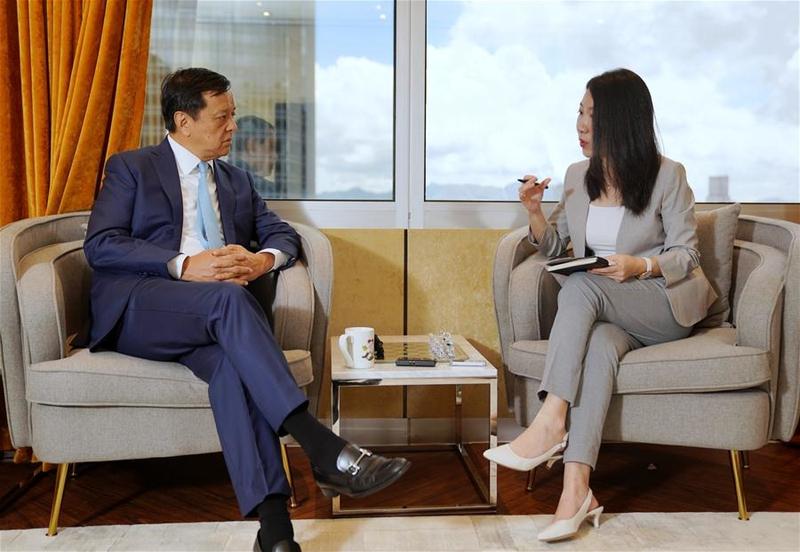 Chief Executive of Hong Kong Exchanges and Clearing Limited (HKEX) Charles Li receives an interview with Xinhua in Hong Kong, June 18, 2020 (WANG SHEN/XINHUA)
Chief Executive of Hong Kong Exchanges and Clearing Limited (HKEX) Charles Li receives an interview with Xinhua in Hong Kong, June 18, 2020 (WANG SHEN/XINHUA)
HONG KONG - The "one country, two systems" principle lays the foundation for consolidating Hong Kong's status as an international financial center, Chief Executive of Hong Kong Exchanges and Clearing Limited (HKEX) Charles Li has said.
Li made the remarks in a recent interview with Xinhua and he recalled the past 10 years during which he witnessed the rapid development and transformation of Hong Kong's capital market.
READ MORE: HKEx chief committed to keeping markets operational
"In creating value for the motherland, Hong Kong itself also gradually grew into a leading international financial center. The success is largely hinged upon the successful implementation of 'one country, two systems'," Li said.
In creating value for the motherland, Hong Kong itself also gradually grew into a leading international financial center. The success is largely hinged upon the successful implementation of "one country, two systems".
Charles Li, HKEX CEO
Hong Kong's global stature has been demonstrated by the facts that the Hong Kong stock exchange topped the global IPO league seven times in the past 11 years, its structured product market has been the largest in the world and it has become the world's second largest bio-tech fund-raising center.
In the process of the opening up of the Chinese mainland's financial market, Hong Kong's role as a bridge connecting the mainland and the world will be further strengthened, Li said.
By making sustained progress and reforms and giving full play to its advantages in internationalization, differentiation and uniqueness, Hong Kong will function in a broader way in serving the country's reform and opening up, he said.
Despite the recent challenges, Hong Kong's financial market has shown its resilience to withstand pressure and self-repair capability, he said. "We are extremely proud of this."
He pointed out that the national security legislation for Hong Kong aims at safeguarding Hong Kong's long-term stability and ensuring the success of "one country, two systems."
The national security legislation will in no way change Hong Kong's special function and role as an international financial market, Li affirmed, noting that other international financial centers such as New York and London are also subject to different forms of national security-related laws and regulations and their world leading financial roles have not been affected.
With regard to the sanctions threatened by the United States, Li stressed that Hong Kong is one of China's most important international capital markets as well as the most important international financial market in Asia for the United States and other Western economies.
No matter what the United States will do, it will not change the fact that Hong Kong will remain the most internationalized and open market in China, which is in the interests of China, the United States and the world," he said.


